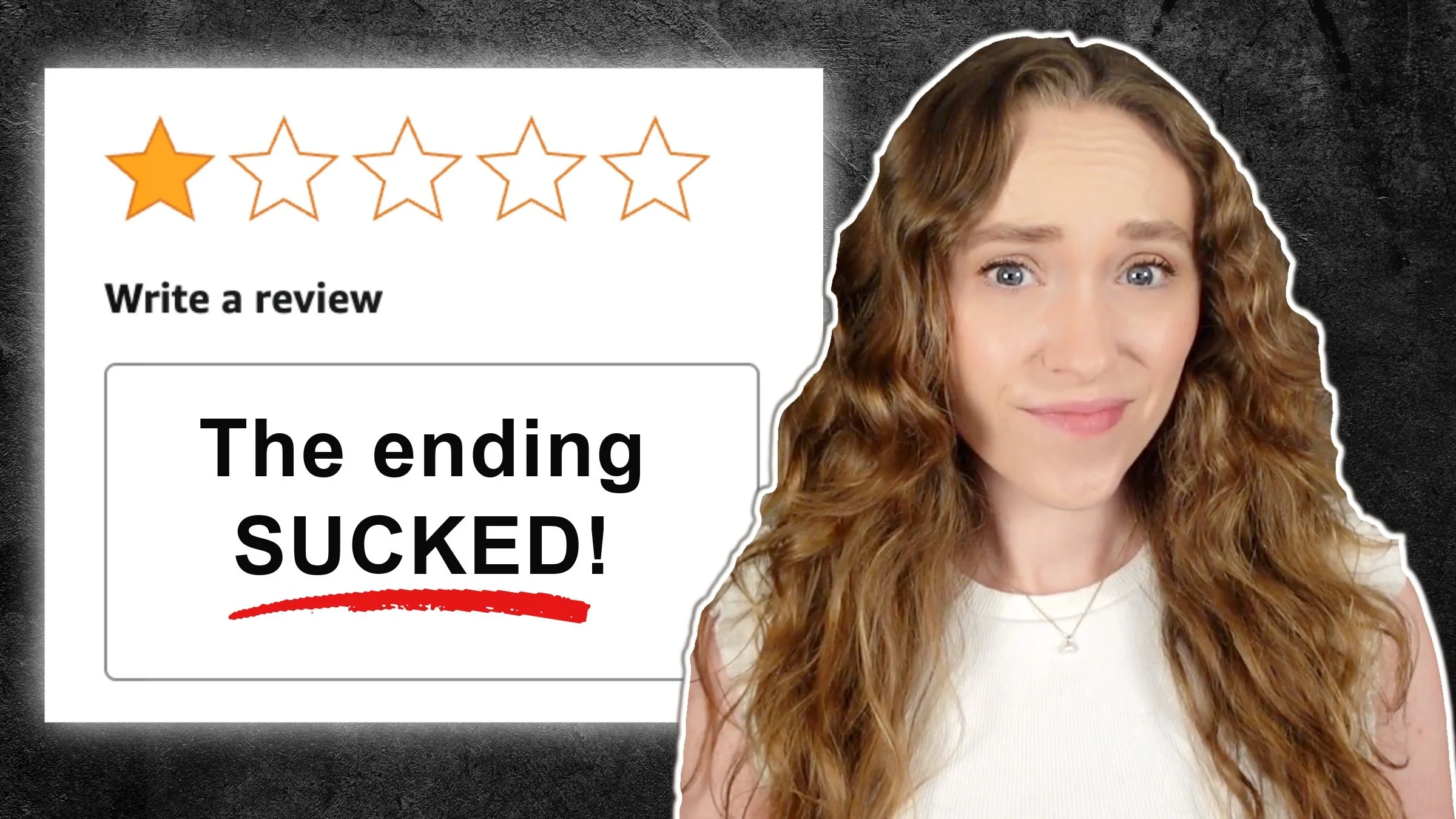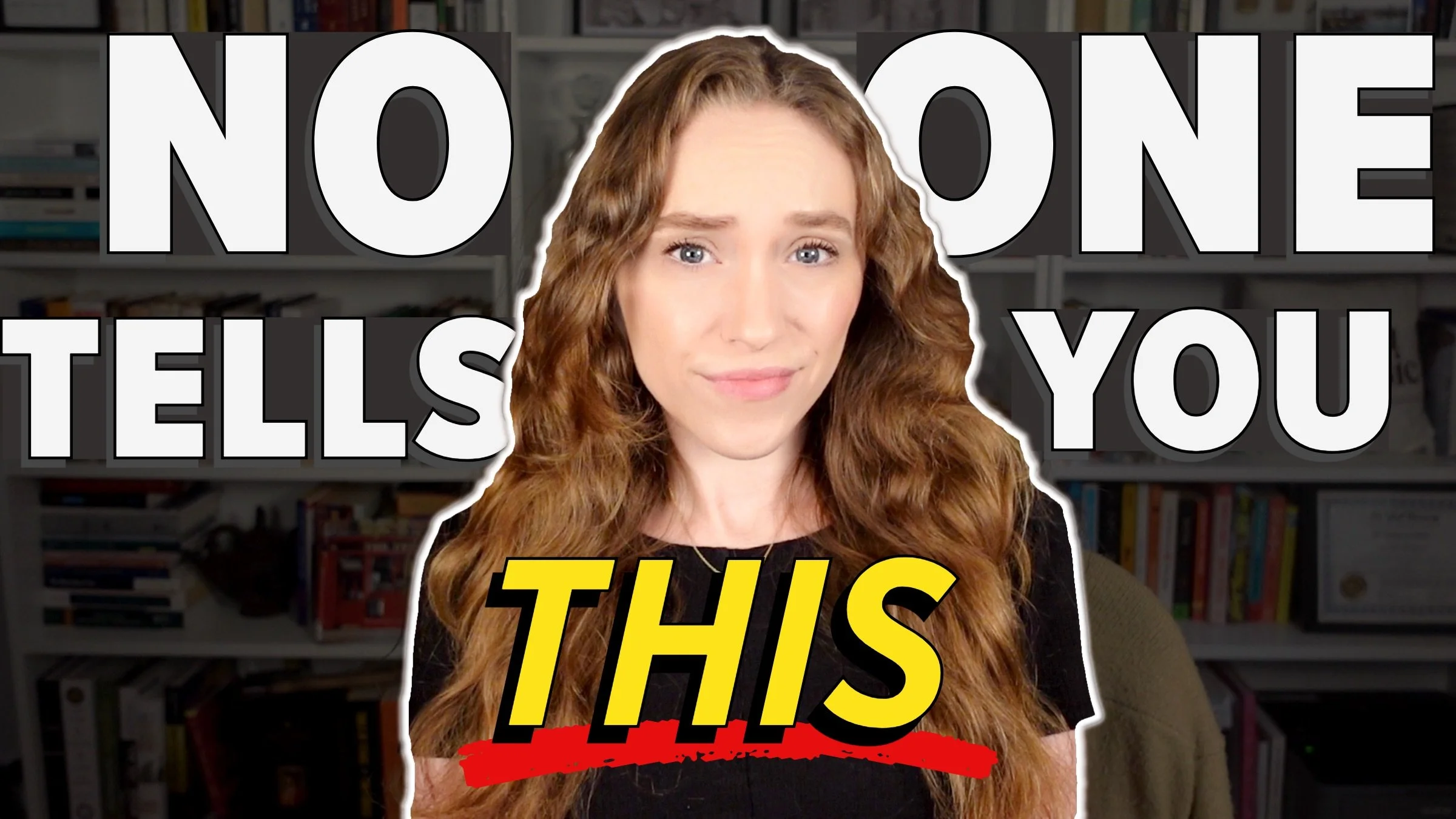How to Pick a Book Title — 4 Ways to Choose the Perfect Title for Your Novel
HIT PLAY OR READ THE POST BELOW:
Picking a title for your book can feel as daunting and significant as choosing your baby's name — after all, this is your book baby, and it's what your book is going to be referred to for the rest of eternity! So, it's no wonder why so many authors get hung up on choosing the perfect title for their book.
As a professional book editor, I've seen countless authors fret over how to pick a book title and even change the title many times over the course of the book’s development. If you’ve found yourself brainstorming title after title after title and then just naming your document “Untitled” because you can't decide on one, you've come to the right place.
I'm going to share four great strategies for how to pick the perfect book title, and for each one I'm going to give examples of successfully published books that use this strategy. Hopefully it gets the wheels turning on some possible titles for your own book!
1. Use a Noun Phrase
If you scan any bookstore shelf, you'll notice that many titles are just intriguing noun phrases, meaning a string of words describing a person, place or thing.
The pros of this approach are that these titles are really simply constructed, they're easy to understand, and they immediately help the reader visualize some kind of aspect of your book. The main con of this approach is that sometimes these types of titles can sound a bit overly generic and just not that interesting. So, you need to make sure you have unique descriptors in there.
A common template that you will see for titles that fall into this category is:
The/A ______ of/in _____
Let’s look at some examples of very famous books that fit this template:
The Girl on the Train
A Gentleman in Moscow
The Midnight Library
All of these are relatively basic; they're easy to conceptualize, but they all have an element of intrigue about them. What is a midnight library, after all? You have to read to find out.
2. Pull a Line From the Book
The next strategy for how to pick a book title is to pull a line from the book itself. This is personally my favorite trick for choosing a book title because it almost feels like a little Easter egg when the reader sees the title in the book itself. And you wrote those words after all — so why not just use them as the title?
For this strategy to work, though, the phrase that you pull from the manuscript does need to stand on its own out of context, and of course it does need to be intriguing. Ideally, the phrase that you select would reflect the tone of the story and represent some broader significance to it — maybe it hints at an important theme, for example.
Two great examples of this in contemporary literature would be:
Little Fires Everywhere — this phrase shows up in the first chapter of the book and has a metaphorical significance
The Things They Carried — this also shows up very early in the book and has a lot of significance to the story, speaking to what the characters are carrying physically and metaphorically
3. Spotlight a Character
The next great strategy for picking a title for your book is to spotlight a character. If you have a book where one of your characters is particularly distinct or unique or plays a very critical role in it, consider spotlighting their name in the title. It doesn't necessarily have to be the protagonist or narrator, but it could be.
If the character has a unique and catchy name, that's a bonus, because this can instantly make your book stand apart and make it hard to forget. This strategy also makes the reader immediately intrigued to learn more about that character; having their name in the title clearly indicates that they play a huge role in the story, so we want to know more about them.
Two great examples of recently published books that use this strategy are:
The Seven Husbands of Evelyn Hugo
Eleanor Oliphant is Completely Fine
We immediately think, “Who is Evelyn Hugo, and why does she have seven husbands?” or we think, “Who is Eleanor Oliphant, and is she actually fine?” These names are very distinctive and these characters are central to the stories.
4. Consider the Genre
The final technique for choosing a title for your book is to consider the genre. No matter how much thought and care you put into your title or how significant you want it to be to you as the author, ultimately the title is a piece of marketing. While of course you want it to feel significant and fitting for your story, the goal of the title is to get a reader interested in picking up and then buying the book — and if it is not serving that purpose, it is failing.
In fact, when I worked in the publishing industry, the marketing team would often comment on the title, and if we were not sure on what the title should be, they would brainstorm ideas as well because it really is a piece of marketing.
Because of that, it is very important for the title to accurately reflect the genre. The title should not mislead the reader to think that the book is going to be one genre and it is really something else entirely. The title and the genre should gel together, so do some research on the types of titles that are commonplace within your specific genre. What types of adjectives or nouns are commonly used? What is the overall tone or vibe that those titles are giving off? Also, you might look at what the average length of those titles are in your genre.
Two great examples of titles that immediately signal the genre are:
Survive the Night, which is clearly a thriller. We're talking about survival at night!
The Summer I Turned Pretty, which is a YA romance. The idea that there's something going on in the summer feels very young, and the phrase “turning pretty” hints at a romance, so the title perfectly indicates YA romance.
I hope this helped get the wheels turning for you on how to find the perfect title for your book. Thanks so much for reading and happy writing!






